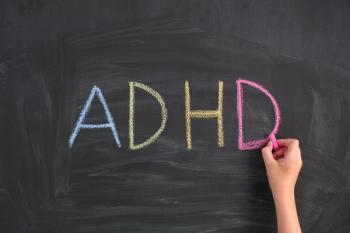
Study: Eco-influencers spread pediatric health misinformation on TikTok
Most child health TikTok videos by non-medical eco-influencers contradicted guidelines, spreading vaccine and infant care misinformation.
A growing number of TikTok videos promoting “natural parenting” and alternative health practices contain misinformation that contradicts established pediatric guidelines, according to new research presented at the American Academy of Pediatrics (AAP) 2025 National Conference & Exhibition in Denver, Colorado.1,2
The study, The Rise of “Eco-Influencers” and Misinformation on Child Health, examined the impact of the eco-influencer movement, which emphasizes holistic living, natural remedies, and skepticism of conventional pediatric care. Researchers analyzed the top TikTok videos labeled with hashtags such as #naturalparenting, #antivaccine, #holistichealth, and #alternativehealing.
“As pediatricians, we’re seeing the effects of online misinformation firsthand. This study shows how quickly false health claims can spread on social media and how important it is for us to engage with families and help them navigate what they’re seeing online,” said study author Maria A. Canas-Galvis, MD, of East Carolina University Health Medical Center.
Study design
Investigators reviewed 200 top TikTok videos, of which 120 met the inclusion criteria. Videos were categorized by creator identity (parent, influencer, healthcare professional, or anonymous), content topic, presence of misinformation, and engagement metrics, including views, likes, and shares. Misinformation was defined as content contradicting recommendations from the American Academy of Pediatrics (AAP) or the Centers for Disease Control and Prevention (CDC).
Findings
Of the 120 videos, which together had more than 45.7 million views, most were created by self-identified parents (48%) or influencers (32%). Healthcare professionals accounted for only 12% of content creators.
Researchers found that:
- Misinformation prevalence: 61% (n=73) of videos contradicted AAP or CDC guidelines.
- Common themes: Vaccine hesitancy (36%), natural remedies for illness (29%), breastfeeding and infant nutrition myths (18%), and rejection of conventional pediatric care (17%).
- Examples of misinformation: Claims of vaccine toxicity, promotion of herbal remedies in place of antibiotics, and assertions that “natural immunity” is superior to vaccination.
- Engagement: Videos containing misinformation attracted significantly higher engagement, averaging 583,000 views per video compared with 214,000 views for accurate, evidence-based content.
The study also found that 80% of misinformation videos were produced by parents and influencers, compared with 20% created by healthcare professionals.
Public health implications
The popularity of misinformation-laden videos highlights the reach and influence of eco-influencers in shaping parental health decisions. Researchers noted that misleading content was more likely to go viral, amplifying its potential to affect public health behaviors such as vaccination uptake and timely medical care.
“The most common themes presented in these videos were vaccine hesitancy, natural remedies for illness, rejection of conventional pediatric care, and breastfeeding and infant nutrition myths,” Canas-Galvis said.
Pediatrician response and future directions
Researchers emphasized that pediatricians must remain aware of the growing influence of digital misinformation and address these issues proactively in clinical care. By understanding the types of misinformation circulating online, physicians can better counsel families and provide guidance rooted in science.
Canas-Galvis added, “This study shows how quickly false health claims can spread on social media and how important it is for us to engage with families and help them navigate what they’re seeing online.”
The authors recommended that health care professionals, educators, and policymakers collaborate to promote digital health literacy and advocate for stronger content moderation on platforms frequented by parents. Future research should explore strategies for countering misinformation and amplifying accurate, evidence-based pediatric health information online.
References:
- American Academy of Pediatrics. Majority of “eco-influencer" TikToks contain contradictory medical information. Accessed September 26, 2025. https://www.eurekalert.org/news-releases/1098951
- Canas-Galvis M. The Rise of “Eco-Influencers” and Misinformation on Child Health. Abstract. Presented at: American Academy of Pediatrics 2025 National Conference & Exhibition. September 26-30, 2025. Denver, Colorado.
Newsletter
Access practical, evidence-based guidance to support better care for our youngest patients. Join our email list for the latest clinical updates.






